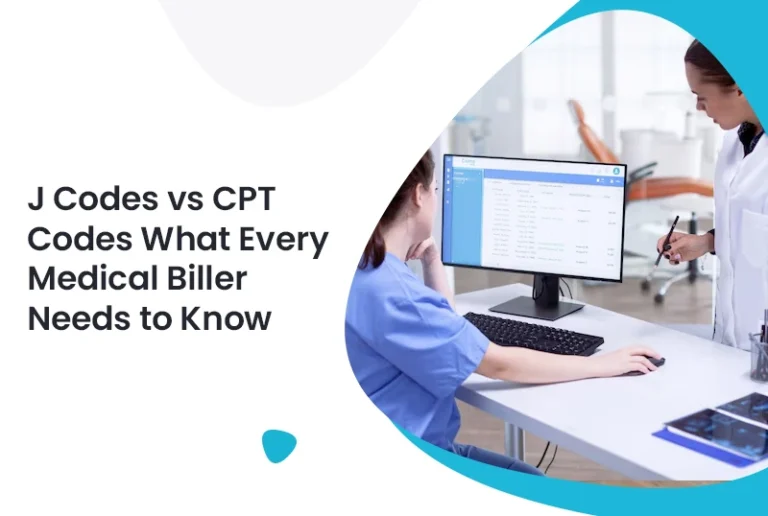Post-Traumatic Stress Disorder (PTSD), coded as F43.10 in the ICD-10 system, is a complex mental health condition affecting millions worldwide. Managing PTSD patients for healthcare providers calls for not only compassionate treatment but also negotiating the complexities of medical billing. Whether running a small clinic or a large practice, leveraging a reliable medical billing service can be a game-changer in managing claims and reimbursements related to PTSD treatments.
Understanding PTSD and the F43.10 Code
- What is PTSD?
PTSD arises after experiencing or witnessing traumatic events such as accidents, natural disasters, or violence. Symptoms may include flashbacks, severe anxiety, and emotional numbness. - ICD-10 Code F43.10:
This code is used to classify PTSD when it is unspecified, encompassing a broad range of symptoms and severities. - Why Accurate Diagnosis Matters:
Precise documentation of PTSD symptoms and diagnosis ensures that healthcare providers can tailor treatments effectively. Additionally, it forms the foundation for accurate billing and insurance claims.
Importance of Accurate Diagnosis
Clear documentation of PTSD symptoms and diagnosis supports effective treatment planning and helps justify the medical necessity of therapeutic interventions. This documentation is the foundation for coding and billing accuracy, impacting reimbursement and regulatory compliance.
Challenges in Billing for F43.10 and How to Overcome Them
Billing for PTSD (F43.10) is not without its hurdles. Some common challenges include:
1. Incomplete or Vague Documentation
When clinical notes lack detail about symptoms, severity, or treatment, coding becomes difficult. Insufficient documentation can lead to inaccurate coding or claim denials.
2. Complex Payer Policies
Insurance companies often require specific documentation to reimburse mental health services. These requirements can vary widely between payers and change frequently.
3. Overlapping Codes
PTSD may coexist with other mental health disorders like depression or anxiety. Incorrectly combining or omitting codes can cause denials or audits.
Solutions:
- Train providers to document PTSD thoroughly, including symptom descriptions, treatment plans, and patient progress.
- Work closely with your billing team or service to understand payer-specific documentation needs.
- Conduct regular audits to detect and correct coding errors.
- Use technology such as Electronic Health Records (EHR) with integrated coding assistance to reduce errors.
How Revenue Cycle Support PTSD Care Billing
Handling claims related to PTSD requires careful coordination between clinical and billing teams. This is where revenue cycle management services become essential:
- Streamlining Claims:
RCM services ensure that claims involving F43.10 are submitted accurately and on time, reducing delays. - Denial Management:
They track and manage claim denials related to PTSD billing, resolving issues quickly to maintain steady cash flow. - Compliance Assurance:
RCM teams stay current with payer requirements and coding changes, helping practices remain compliant. - Improving Documentation:
They work with providers to enhance clinical documentation, supporting strong claims that withstand audits.
Do you have an RCM process tailored to complex mental health billing?
Best Practices in Medical Billing and Coding for F43.10
Accurate medical billing and coding for PTSD under code F43.10 is vital for reimbursement and regulatory compliance.
- Verify Clinical Support:
Ensure that clinical notes thoroughly describe the PTSD diagnosis, symptoms, and treatment plan. - Use Supporting Codes When Applicable:
Additional codes for associated conditions or therapy sessions may be needed for comprehensive billing. - Stay Current with Coding Guidelines:
ICD-10 and payer policies evolve regularly. Continuous education reduces errors and improves claim acceptance. - Audit Claims Regularly:
Routine reviews catch coding inconsistencies and improve overall billing accuracy. - Educate Providers and Staff:
Training on documentation and coding requirements helps maintain high-quality claims.
Conclusion
PTSD (F43.10) impacts both patient care and the medical billing process. Utilizing efficient claims handling streamlines submissions, reduces denials, and accelerates reimbursement. Meanwhile, precise medical billing and coding ensure compliance and financial stability. By mastering these components, your practice can focus on delivering compassionate, high-quality care while maintaining a healthy revenue cycle.
FAQs
1. What does the ICD-10 code F43.10 signify?
It represents unspecified Post-Traumatic Stress Disorder (PTSD).
2. Why is accurate coding important for F43.10?
Correct coding helps secure proper reimbursement and reduces claim denials.
3. How does a medical billing service help with PTSD claims?
They manage claim submission, accuracy, and follow-up to optimize payments.
4. What role does revenue cycle management play in PTSD billing?
RCM ensures timely, compliant claims processing and effective denial management.
5. How can providers improve documentation for F43.10?
By thoroughly detailing symptoms, treatment plans, and patient responses in clinical notes.







